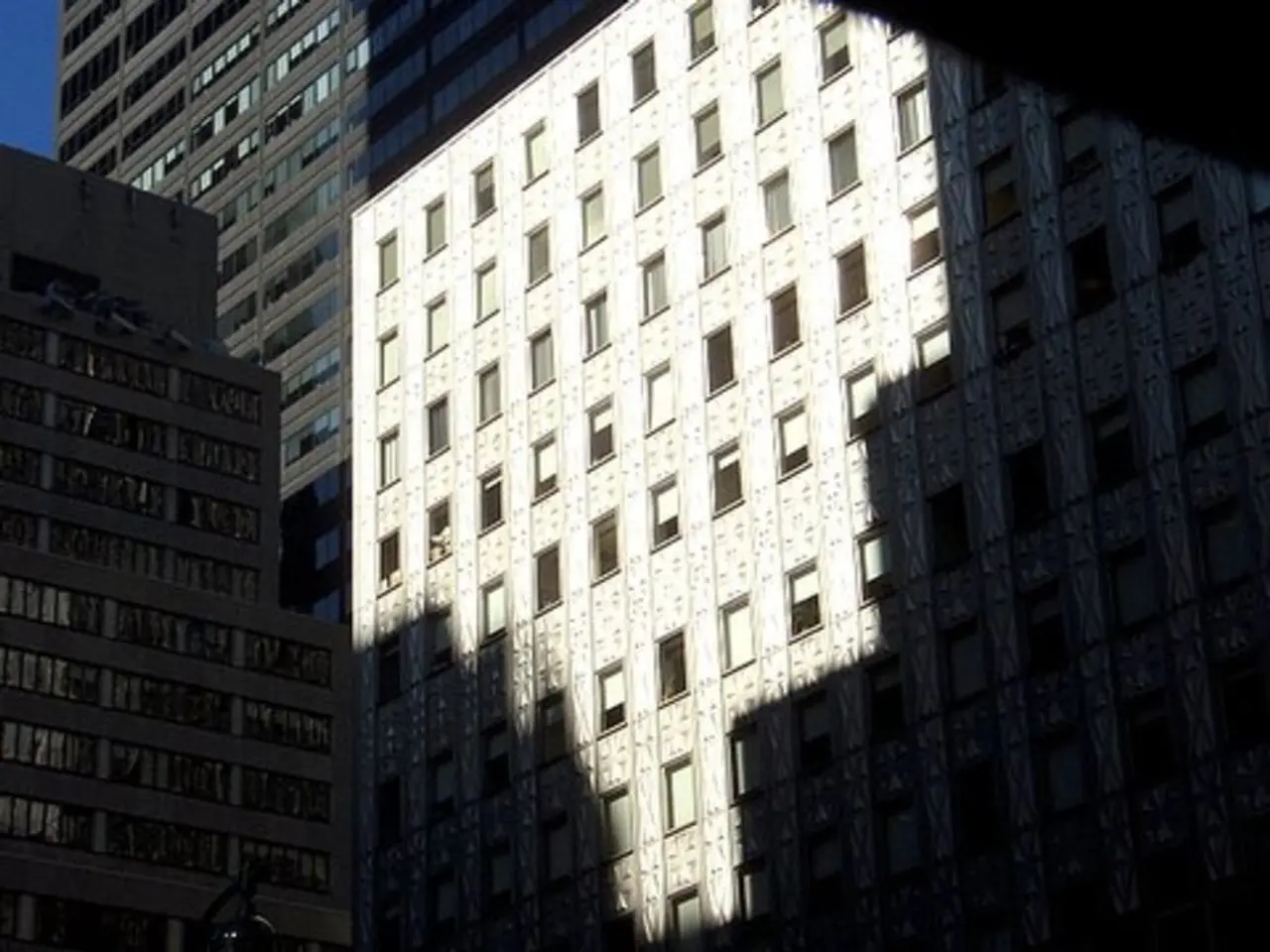South-East Asian production company Maxcrete successfully earns LEED certification for its AAC block and panel production.
In a groundbreaking development for the construction industry in South-East Asia, Maxcrete, a company based in Bangladesh, has secured the LEED Gold Certification. This makes Maxcrete the first AAC block and panel manufacturer in the region to achieve this recognition.
Maxcrete's unique approach to manufacturing has not only earned them this prestigious certification but also offers numerous benefits over traditional clay bricks and concrete.
The company's operations have been calculated to save 182.95 tonnes of standard coal annually and reduce CO2 emissions by 201.4 tonnes, contributing significantly to environmental sustainability.
Maxcrete's AAC blocks are made from a blend of cement, sand, quick lime, gypsum, aluminium powder, and water. These blocks are lightweight, accounting for about 75–80% air by volume, which reduces structural load, simplifies handling, lowers transportation costs, and cuts labor requirements.
One of the key advantages of AAC blocks is their excellent thermal efficiency. The porous structure provides outstanding thermal insulation, reducing heating and cooling energy consumption by up to 30%, thereby lowering building operational costs.
AAC offers superior fire resistance, typically rated for 4 hours (sometimes tested up to 8 hours), outperforming traditional concrete and brick in fire safety. The blocks can be cut and shaped easily using basic woodworking tools, allowing precise fitting, reducing waste, and speeding up construction.
The air-filled pores in AAC blocks also provide strong acoustic insulation, beneficial for urban or industrial buildings. AAC is resistant to mold, rot, and pests such as rodents, and maintains durability under various climatic conditions.
Manufactured to precise dimensions, AAC blocks reduce the need for on-site trimming and the use of excess mortar, improving construction quality and efficiency. AAC has a lower environmental footprint due to reduced raw material use, incorporation of industrial by-products, and energy-efficient production. It also aligns well with green building certifications like LEED.
In addition, AAC's lightweight nature contributes to enhanced seismic performance by reducing earthquake forces on structures. Using AAC blocks can reduce the need for steel and concrete reinforcement by up to 20%, lowering overall construction costs.
Maxcrete's factory is fully automated and state-of-the-art, integrating advanced technologies and renewable energy systems. The factory has a solar capacity of 357.30 kWp / 300 kW, generating approximately 314 kWh of electricity daily and 459,082 kWh annually.
Maxcrete can manufacture the equivalent of 18 crore standard-sized bricks annually, sufficient to fully supply 1,800 nine-storey buildings each year. The company's achievements signify a new benchmark for eco-friendly building material manufacturing in the region.
Plans are underway to expand the solar capacity to 2,170 kWp, further enhancing Maxcrete's commitment to sustainable and green manufacturing practices. These savings are equivalent to planting 301 trees per year.
Developers can benefit from up to 20 percent savings in structural costs due to reduced overall load, minimal wastage, and nearly half the mortar requirement compared to conventional brick construction. Maxcrete's achievement in achieving the LEED Gold Certification is a significant step towards promoting eco-friendly construction practices in South-East Asia.
[1] https://www.researchgate.net/publication/325583967_Autoclaved_Aerated_Concrete_AAC_Block_and_Panel_Manufacturing_Process [2] https://www.researchgate.net/publication/325425239_Autoclaved_Aerated_Concrete_AAC_Block_and_Panel_Manufacturing_Process [3] https://www.sciencedirect.com/science/article/pii/S2214629618300676 [4] https://www.sciencedirect.com/science/article/pii/S235246101931005X
- The achievement of Maxcrete in securing the LEED Gold Certification, being the first AAC block and panel manufacturer in South-East Asia, suggests a promising direction in environmental-science, particularly climate-change mitigation, through their manufacturing process.
- The unique properties of Autoclaved Aerated Concrete (AAC) blocks, such as their lightweight nature, thermal efficiency, fire resistance, and acoustic insulation, make them an ideal choice for sustainable-living and home-and-garden construction, contributing to a lower carbon footprint and reduced energy consumption.
- Maxcrete's factory incorporates advanced technologies and renewable energy systems, producing solar energy and minimizing its environmental impact, further emphasizing the company's commitment to technology and sustainable-living practices in the construction industry.




